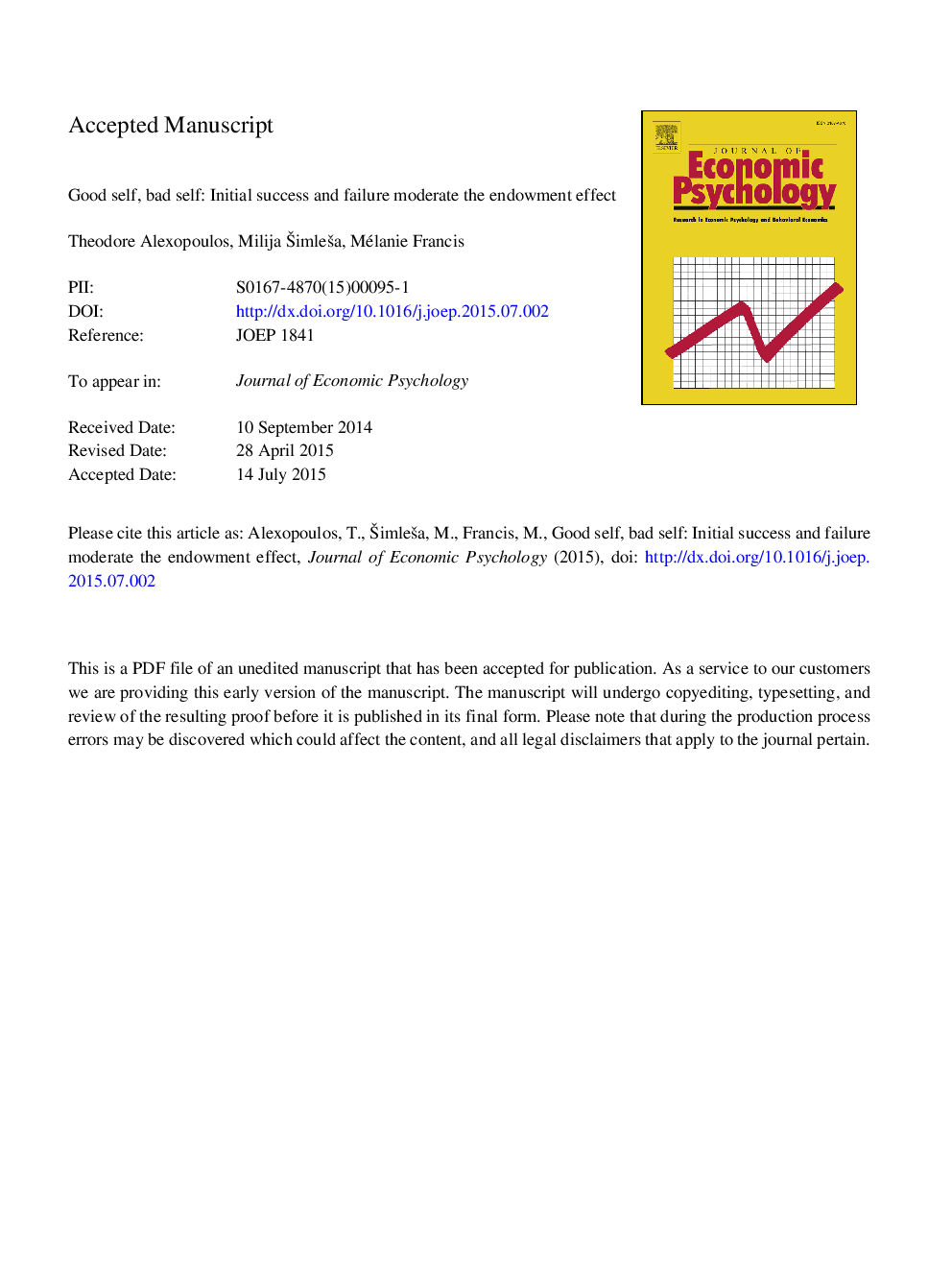| کد مقاله | کد نشریه | سال انتشار | مقاله انگلیسی | نسخه تمام متن |
|---|---|---|---|---|
| 7244579 | 1471716 | 2015 | 27 صفحه PDF | دانلود رایگان |
عنوان انگلیسی مقاله ISI
Good self, bad self: Initial success and failure moderate the endowment effect
ترجمه فارسی عنوان
خودم خوب، خودم بد: موفقیت و شکست اولیه، تأثیر تأمین مالی را کاهش می دهد
دانلود مقاله + سفارش ترجمه
دانلود مقاله ISI انگلیسی
رایگان برای ایرانیان
کلمات کلیدی
موضوعات مرتبط
علوم انسانی و اجتماعی
مدیریت، کسب و کار و حسابداری
بازاریابی و مدیریت بازار
چکیده انگلیسی
Recent research on the endowment effect (a gap between selling and buying prices for the same good) considers as a working hypothesis that an endowed good becomes part of the self. Consequently, the endowment effect is viewed as a self-enhancement strategy originating or following from this self-object link. Within this perspective, subsequent self-threat typically enhances the endowment effect, whereas self-affirmation eliminates the endowment effect. Contrasting these findings and drawing on the idea that initial self-evaluations constrain the value of a newly acquired object, we reasoned that failures (successes) of the self experienced before the endowment will lower (raise) the value of possessions and influence the endowment effect accordingly. In Studies 1 and 2, we show that a private self-threat (vs. no threat) induced before endowing (vs. presenting) participants with a good eliminates the endowment effect. In Study 3, we show that feelings of pride (vs. no pride) induced via proprioceptive feedback yields a reliable endowment effect. These findings suggest that initial self-success/failure moderate the endowment effect and further show that bodily cues influence property transaction.
ناشر
Database: Elsevier - ScienceDirect (ساینس دایرکت)
Journal: Journal of Economic Psychology - Volume 50, October 2015, Pages 32-40
Journal: Journal of Economic Psychology - Volume 50, October 2015, Pages 32-40
نویسندگان
Theodore Alexopoulos, Milija Å imleÅ¡a, Mélanie Francis,
